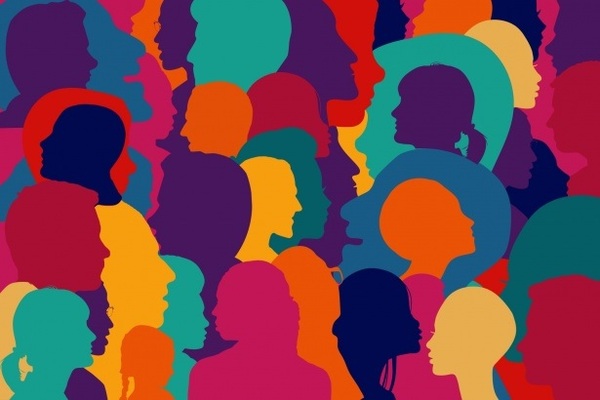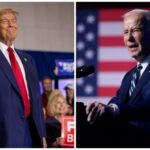
–>
December 3, 2022
In June of 2023 the Supreme Court will render its decision regarding the legality of racial preferences in higher education. Considering recent rulings, the Court is likely to ban outright or at least severely limit these preferences. Will the Court thus end racial preferences? Unlikely — the passion for “diversity” (i.e., admitting less-qualified minorities) — seems hard-wired in today’s elite universities and, more telling, American higher education has long prepared for this dreaded day. Their strategy is straightforward: since legal proof of discrimination depends on statistical evidence across racial groups, just eliminate tests like the SAT that expose biases.
‘); googletag.cmd.push(function () { googletag.display(‘div-gpt-ad-1609268089992-0’); }); }
The latest installment of messenger shooting is a pronouncement from the American Bar Association permitting law schools to drop the LSAT in the admissions process beginning in fall 2025. No doubt, other subterfuges, for example, eliminating class rankings, are being contemplated. University administrators thus resemble criminals scrubbing the crime scene for any evidence of their wrongdoing. How can you sue universities for racial discrimination if everything is murky and ill-defined? For schools prizing diversity über alles, mission accomplished, or it would seem.
Will hiding statistical evidence of preferences ensure that blacks and Asians finally be on equal footing when it comes to pursuing careers in law or medicine? The answer is “no,” and, if anything, banning these indicators will only acerbate racial bias. Abolishing quantitative criteria will restore the earlier era when schools freely indulged prejudices. Recall that one of the purposes of SAT-like tests was to overcome the racial/ethnic unfairness that came with subjective admission standards.
People always use some information when making choices, no matter how iffy the data. Try shopping for a product about which you know zero — you will probably decide according to some “irrelevant” detail such as a sexy brand name. No Wall Street law firm to hire a Yale or Harvard graduate without reference to some objective measures. With the cost of making a wrong choice astronomical, the law firm will undoubtedly ferret out information, and do so regardless of a school’s best efforts to hide racial inequalities. And the more consequential the choices, the greater the incentives to unearth information. Think pro-sports teams scrutinizing potential first-round draft picks who will then receive million-dollar contracts.
‘); googletag.cmd.push(function () { googletag.display(‘div-gpt-ad-1609270365559-0’); }); }
Absent school-supplied statistical information that might reveal that admitted blacks scores lower than Asians on reading comprehension, future employers will ask if the job candidate graduated from an academically demanding undergraduate college versus a school notorious for grade inflation. The interviewer might ask the job applicant their opinion about recently read books to assess ability to absorb, organize, and articulate information. Twenty minutes of chit-chat may reveal as much as an all-day objective test.
 There’s also information over which the job candidate has scant control. Oscar Wilde once quipped that only shallow people do not judge by appearances, and this certainly applies to assessing talents. Yes, you can ban the SAT that explicitly calibrates vocabulary, but what if the job candidate is unfamiliar with commonplace legal terminology? Even Supreme Court justices can display such ignorance or use arcane terms inappropriately. Yes, statisticians might cleanse an SAT-like exam of alleged cultural bias, but cultural ignorance is not easily hidden. Those unfamiliar with history, art, and literature and our culture more generally, invariably display this ignorance. Remember when Barack Obama referenced somebody who “spoke Austrian”?
There’s also information over which the job candidate has scant control. Oscar Wilde once quipped that only shallow people do not judge by appearances, and this certainly applies to assessing talents. Yes, you can ban the SAT that explicitly calibrates vocabulary, but what if the job candidate is unfamiliar with commonplace legal terminology? Even Supreme Court justices can display such ignorance or use arcane terms inappropriately. Yes, statisticians might cleanse an SAT-like exam of alleged cultural bias, but cultural ignorance is not easily hidden. Those unfamiliar with history, art, and literature and our culture more generally, invariably display this ignorance. Remember when Barack Obama referenced somebody who “spoke Austrian”?
A hydraulic-like relationship exists between efforts to eliminate “hurtful” information and the substitution of stereotypes for this excluded information. Ivy League schools may successfully suppress all data that reflects poorly on black academic accomplishment, but such exclusion hardly eliminates even a tiny fraction of widely available race-related information. Nobody can be a blank slate. Even without having read The Bell Curve, those interviewing job candidates surely know that African Americans, on average, have lower IQs than whites and Asians, that blacks are disproportionately likely to commit crimes and otherwise behave in ways that would render them risky for an internship. Such negative information is just common knowledge, including in today’s American and elite schools, regardless of all the anti-bias training and efforts to demonize this folk wisdom. Critically, schools are powerless to overcome it. Universities can only insulate themselves from future litigation, not transform reality.
Moreover, the racial stereotypes that infuse American culture can be positive, and this positive character similarly undermines efforts to suppress race-based hurtfulness. It would be perfectly rational, for example, if future employers disproportionately selected school graduates of Asian descent if a firm needed those with superior mathematical skills. Even seemingly irrelevant facts can be helpful when schools refuse to supply vital information. A law firm with an upscale WASP clientele might look more favorably on a prospective employee named Richard P. Worthington III versus a job candidate with a distinctive “black” name.
Physical appearances may well dominate in the absence of test scores. Woke professors may denounce lookism and ableism, but absent objective data it will be hard to resist the lure of preferring attractive, nicely dressed applicants. Schools may ban the SAT and the LSAT, refuse to release grades and class ranks to help blacks, but this might be devastating for a super-smart black job candidate who is 200 pounds overweight and speaks with a thick accent. If only this candidate had test score data to overcome misleading appearances.
No school can ban prospective employees asking potentially revealing questions about hobbies, fluency in foreign languages and membership in clubs choosing their members according to intelligence. Schools banishing objective tests are just playing Whack-A-Mole since reality cannot be suppressed.
‘); googletag.cmd.push(function () { googletag.display(‘div-gpt-ad-1609268078422-0’); }); } if (publir_show_ads) { document.write(“
As schools attempt to hide information that might impair their quest for diversity, individuals and potential employers will learn to game the system and circumvent this ideologically driven enterprise. The lack of tests helps the devious. Recall an earlier era when the Ivy League manipulated its admission standards to exclude Jews of Eastern European backgrounds. It became a game where Hershel Abramowitz reinvented himself to be Henry Adams only to have the school ask if your family had recently changed its name, and what was the previous family name? If high school grades and class standing are substituted for SAT-like tests, rest assured that cunning applicants will enroll in grade-boosting courses like cooking versus calculus.
In sum, subverting a potential Supreme Court ban of racial preferences will not help academically struggling minority students, no matter how much Deans of Admission lie and cheat to hide racial preferences. Humans seek information when evaluating talent, and if one source of information is forbidden, information will be found elsewhere, and this information may be far more damaging for black students than dodgy LSAT scores. Moreover, killing messengers bearing statistical bad news to achieve diversity may backfire as potential employers shun elite schools that hide admissions data and instead recruit at second tier schools that still rely on objective tests. Ironically, the very best minority students may prefer such schools since their plain-to-see top scores will only boost their market value. Elite schools may rue the day they decided to prioritize avoiding discrimination lawsuits over openly acknowledging their excellence.
Image: Public Domain Pictures
<!– if(page_width_onload <= 479) { document.write("
“); googletag.cmd.push(function() { googletag.display(‘div-gpt-ad-1345489840937-4’); }); } –> If you experience technical problems, please write to [email protected]
FOLLOW US ON
<!–
–>
<!– _qoptions={ qacct:”p-9bKF-NgTuSFM6″ }; ![]() –> <!—-> <!– var addthis_share = { email_template: “new_template” } –>
–> <!—-> <!– var addthis_share = { email_template: “new_template” } –>





